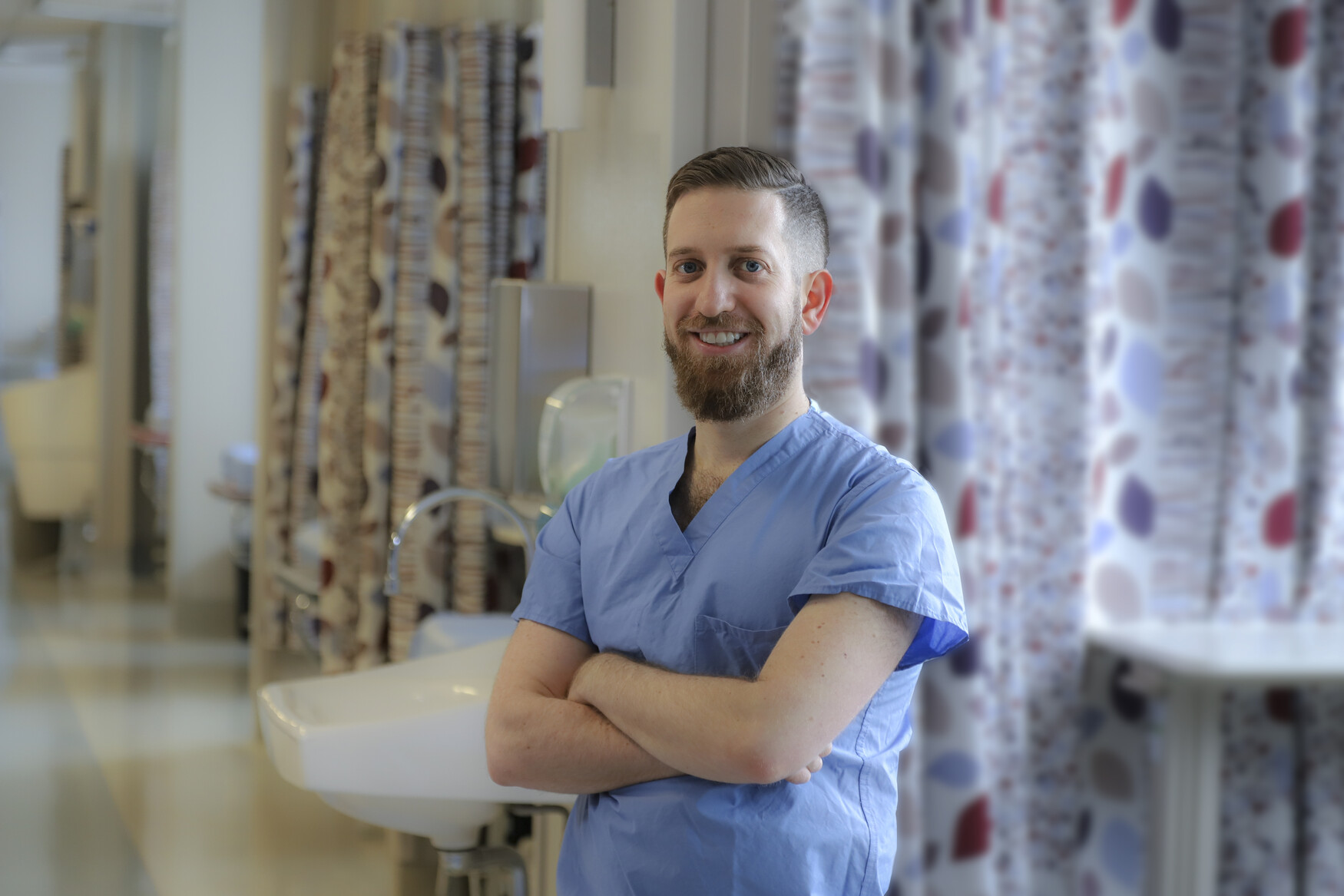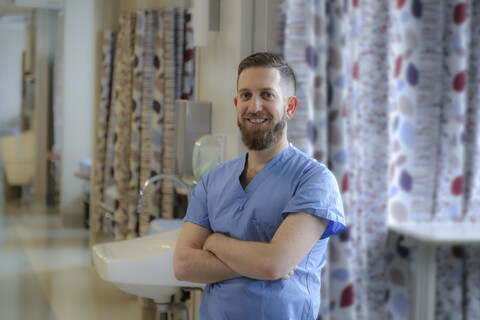Breadcrumbs
- Home
- MD/PhD Program
- News
- Gaps in Data Impact Patients Considering Gender Affirming Surgery
Gaps in Data Impact Patients Considering Gender Affirming Surgery

Ciara Parsons

Drs. Yonah Krakowsky, Ethan Grober and Kinnon Ross MacKinnon published a commentary this month in the Canadian Urological Association Journal, which focused on the absence of data on surgical outcomes.
“The basic issue is that generally, whenever there's a surgical intervention, there's a very rich amount of data on outcome techniques,” said Krakowsky, lead author on the paper who is a lecturer in the division of urology at U of T, and a urologist and sexual medicine surgeon at Women’s College Hospital and Mount Sinai Hospital.
“This data looks at things like quality control, surgical outcomes, what the expected complications might be and so on,” said Krakowsky. “But with gender affirming surgeries, there really is a huge void in the literature.”
Krakowsky, who is director of the transition-related surgery program at Women’s College Hospital, said the lack of data may also impact the decisions transgender patients make when researching gender affirming surgery. “In advance of gender affirming surgery, patients sometimes base their decisions on anecdotal evidence. If we had data that tracked actual patient outcomes, it may aid their decision-making process,” he said.
Factors including complications associated with specific procedures, surgical outcomes and other items related to quality of life could be recorded and measured through data collection tools and reporting procedures, the researchers said.
This information would be beneficial to patients, but would also help surgeons introduce quality improvement strategies, and enhance surgical techniques and the study of outcomes with validated data.
One reason data on gender affirming surgeries has been scarce is that poor access, long waiting lists and a lack of surgeons specializing in the procedure has caused many patients to seek surgery away from where they live, sometimes internationally in countries like Belgium and Thailand.
“In surgery, you generally form a longitudinal kind of relationship with patients,” Krakowsky said. “So, when people are travelling great distances for surgery, we miss information about follow-ups and patient and surgical outcomes.”
Other issues have contributed to the loss of valuable data and hindered surgical outcome analyses, such as lack of reporting mechanisms in private clinics, where many gender affirming surgeries are done, and societal stigma.
Krakowsky believes that Canada can be a leader in transforming this area of trans medicine, as Women’s College Hospital in Toronto and Vancouver General Hospital now have specialized clinics that offer this procedure.
“I think this is an exciting time in the history of surgery for Toronto and Vancouver, because gender affirming surgery is now being performed in an academic environment that is really prioritizing the accumulation of data and analysis,” he said. “The process in which the surgery occurs, like the technique, will innovate and the discussions around it will evolve, too.”
The researchers said information collected from these respective academic hospitals could be used to create provincial or national databases on gender affirming surgery, inform international medical bodies and assist with the development of comparative scientific studies — all of which would improve patient safety and well-being.
News


